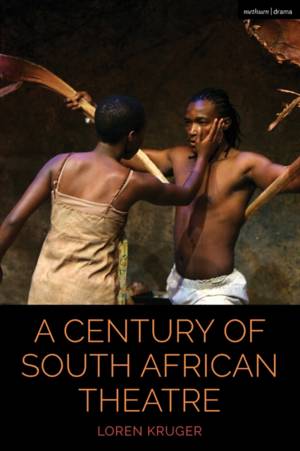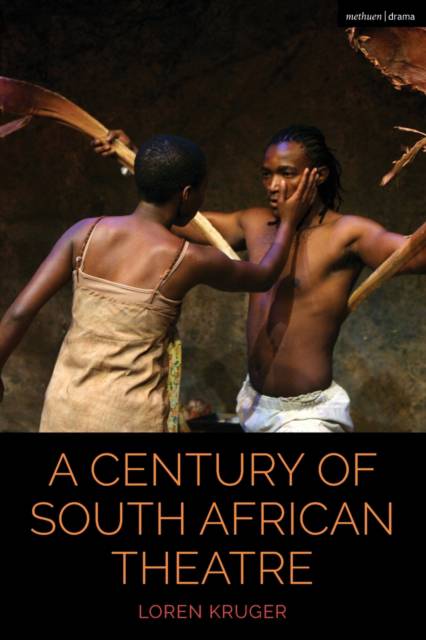
- Afhalen na 1 uur in een winkel met voorraad
- Gratis thuislevering in België vanaf € 30
- Ruim aanbod met 7 miljoen producten
- Afhalen na 1 uur in een winkel met voorraad
- Gratis thuislevering in België vanaf € 30
- Ruim aanbod met 7 miljoen producten
Omschrijving
"Theatre is not part of our vocabulary" Sipho Sepamla's provocation in 1981, the year of famous anti-apartheid play Woza Albert!, prompts the response, yes indeed, it is. A Century of South African Theatre demonstrates the impact of theatre and other performances-pageants, concerts, sketches, workshops, and performance art-over the last hundred years. Its coverage includes African responses to pro-British pageants celebrating white Union in 1910, such as the Emancipation Centenary of the abolition of British colonial slavery in 1934 organized by Griffiths Motsieloa and HIE Dhlomo, through anti-apartheid testimonial theatre by Athol Fugard, Maishe Maponya, Gcina Mhlophe, and many others, right up to the present dramatization of state capture, inequality and state violence in today's unevenly democratic society, where government has promised much but delivered little.
Building on Loren Kruger's personal observations of forty years as well as her published research, A Century of South African Theatre provides theoretical coordinates from institution to public sphere to syncretism in performance in order to highlight South Africa's changing engagement with the world from the days of Empire, through the apartheid era to the multi-lateral and multi-lingual networks of the 21st century. The final chapters use the Constitution's injunction to improve wellbeing as a prompt to examine the dramaturgy of new problems, especially AIDS and domestic violence, as well as the better known performances in and around the Truth and Reconciliation Commission. Kruger critically evaluates internationally known theatre makers, including the signature collaborations between animator/designer William Kentridge, and Handspring Puppet Company, and highlights the local and transnational impact of major post-apartheid companies such as Magnet Theatre.Specificaties
Betrokkenen
- Auteur(s):
- Uitgeverij:
Inhoud
- Aantal bladzijden:
- 288
- Taal:
- Engels
- Reeks:
Eigenschappen
- Productcode (EAN):
- 9781350008014
- Verschijningsdatum:
- 28/11/2019
- Uitvoering:
- Paperback
- Formaat:
- Trade paperback (VS)
- Afmetingen:
- 140 mm x 216 mm
- Gewicht:
- 498 g

Alleen bij Standaard Boekhandel
Beoordelingen
We publiceren alleen reviews die voldoen aan de voorwaarden voor reviews. Bekijk onze voorwaarden voor reviews.







